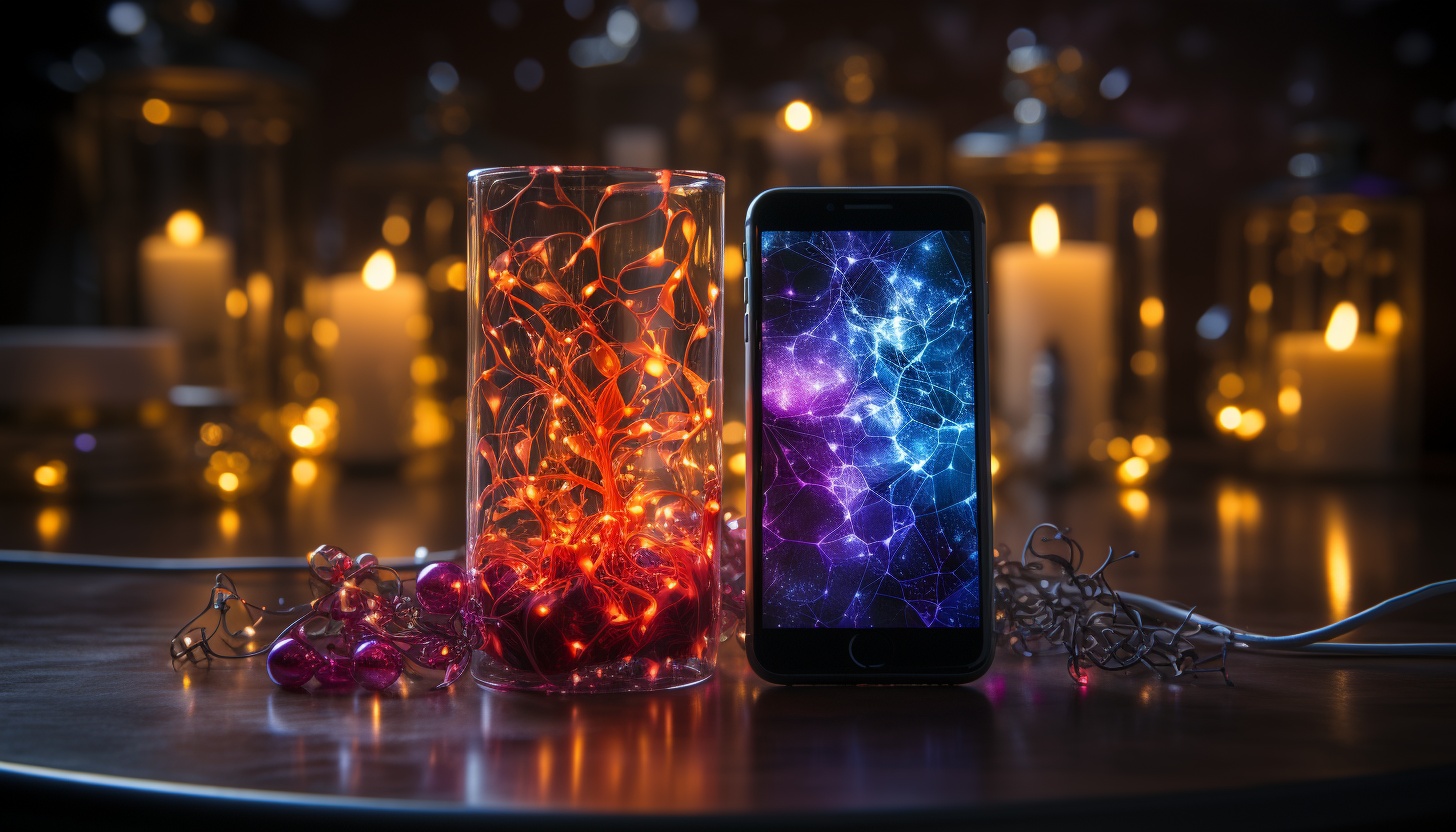
The Psychology of Swiping: Understanding the Addiction to Dating Apps
Do you find yourself endlessly swiping, seeking that elusive connection? The allure of dating apps is undeniable, offering the promise of endless possibilities at your fingertips.
But have you ever wondered why these apps can become so addicting? This article delves into the psychology behind the addiction to dating apps. By examining the role of reward systems, social validation, and the fear of missing out, we aim to shed light on the captivating world of swiping and its impact on our lives.
The Allure of Endless Possibilities

The allure of endless possibilities on dating apps is what keeps you hooked. With just a swipe of your finger, you’re instantly connected to a vast pool of potential partners. The sheer number of options at your fingertips is both exciting and overwhelming. Research shows that this sense of abundance triggers a psychological phenomenon known as the ‘paradox of choice.’ While having many options may seem desirable, it can actually lead to decision paralysis and dissatisfaction.
Dating apps capitalize on this psychological response by presenting you with a seemingly infinite array of profiles. Each profile represents a potential romantic connection, fueling your curiosity and desire for exploration. The anticipation of finding the perfect match keeps you coming back for more, endlessly swiping in the hopes of discovering someone who fits your criteria.
Moreover, dating apps provide a sense of control over your romantic life. You have the power to filter through profiles, setting specific preferences and criteria. This illusion of control creates a sense of empowerment, as if you’re the architect of your own romantic destiny. However, this control often comes at a cost. Research suggests that the more options you have, the less satisfied you’re with your final choice. The fear of missing out on a potentially better match can lead to perpetual dissatisfaction and a never-ending quest for the perfect partner.
The Role of Reward Systems

To truly understand the addiction to dating apps, it’s important to recognize the role that reward systems play in keeping users engaged. These apps are designed to provide a sense of reward through various mechanisms, leading to a cycle of seeking and receiving gratification.
Here are three ways in which reward systems contribute to the addictive nature of dating apps:
1. Instant gratification: Dating apps offer the promise of immediate rewards in the form of matches, messages, and validation. Each swipe presents the potential for a positive outcome, creating a sense of anticipation and excitement. This instant gratification can be highly addictive, as users become conditioned to seek out the next reward.
2. Variable rewards: Dating apps employ a technique called variable reinforcement, where rewards are delivered at unpredictable intervals. This unpredictability triggers a stronger response in the brain, as it mimics the excitement of real-life rewards. Users never know when they’ll receive a match or a message, which keeps them constantly engaged and seeking more.
3. Social validation: Dating apps provide a platform for social validation, allowing users to receive positive feedback and attention from others. The approval and validation gained from matches and messages can be highly rewarding, boosting self-esteem and reinforcing the addictive behavior.
Understanding the role of reward systems is crucial in addressing the addiction to dating apps. By recognizing these mechanisms, users can develop healthier habits and regain control over their app usage.
The Impact of Social Validation

Receiving positive feedback and attention from others on dating apps can greatly impact your self-esteem and reinforce addictive behavior. When you receive validation from others on these platforms, it can provide a temporary boost to your self-worth and confidence. This validation can come in various forms, such as receiving compliments on your appearance or receiving matches and messages from potential partners.
To better understand the impact of social validation on addictive behavior, let’s analyze the two main effects it can have:
| Positive Impact | Negative Impact |
|---|---|
| Reinforces the belief that you are attractive and desirable | Creates a dependency on external validation |
| Increases feelings of self-worth and confidence | Can lead to seeking validation solely through dating apps |
| Strengthens the desire for continued engagement with the app | Can result in a distorted perception of self |
| Can lead to a sense of accomplishment and satisfaction | Can contribute to feelings of insecurity and inadequacy |
While receiving validation from others can be a positive experience, it is important to remember that true self-worth should not solely depend on external factors. Developing a healthy sense of self-esteem requires a balance between seeking validation from others and nurturing self-acceptance and self-love.
Escaping Reality Through Virtual Connections

When you escape reality through virtual connections on dating apps, you immerse yourself in a world where you can create an idealized version of yourself. This virtual realm provides a sense of control and escapism, allowing you to craft an identity that may differ from your real-life self.
Here’s how the allure of virtual connections can captivate you:
1. Fantasy and Idealization: Dating apps offer a platform where you can present yourself in the best possible light. You can carefully curate your profile, select the most flattering photos, and highlight your most attractive qualities. This process allows you to create an idealized version of yourself, offering a temporary escape from the insecurities and imperfections of reality.
2. Endless Possibilities: In the virtual world of dating apps, the options seem endless. You have access to a vast pool of potential partners, each with their own unique qualities. This abundance can create a sense of excitement and anticipation, fueling the desire to continue swiping and exploring virtual connections.
3. Emotional Distancing: Virtual connections provide a level of emotional detachment, allowing you to interact with others without the fear of rejection or vulnerability that often accompanies face-to-face interactions. This emotional distance can be appealing, as it shields you from the potential pain or disappointment that can arise from real-life relationships.
While virtual connections on dating apps may offer temporary relief from the complexities of reality, it’s essential to recognize the potential pitfalls of excessive escapism. Building genuine connections requires vulnerability, empathy, and a willingness to embrace the messy realities of human interaction.
The Fear of Missing Out (Fomo)

As you immerse yourself in the world of virtual connections on dating apps, the fear of missing out (Fomo) can intensify your addiction. Fomo refers to the anxiety and restlessness that arise from the belief that others are experiencing more interesting and fulfilling experiences than you.
In the context of dating apps, Fomo can be fueled by the constant stream of potential matches and the fear that you might miss out on a perfect match if you don’t swipe right quickly enough. This fear is often exacerbated by the addictive nature of these apps, which keep you engaged through features like notifications and limited-time offers.
Research has shown that Fomo can lead to increased usage of dating apps as individuals seek to alleviate their anxiety and feel connected to others. However, this reliance on dating apps as a source of validation and social interaction can be detrimental to one’s mental health and overall well-being.
It’s important to recognize the influence of Fomo and take steps to manage it, such as setting boundaries for app usage and prioritizing real-life connections.
Conclusion
In conclusion, the addictive nature of dating apps can be understood through the psychology of swiping. The allure of endless possibilities, the role of reward systems, the impact of social validation, and the escape from reality all contribute to this addiction.
It’s a virtual world where one can experience the fear of missing out on potential connections. Understanding these psychological factors can help individuals navigate the dating app landscape with a more informed and balanced approach.






